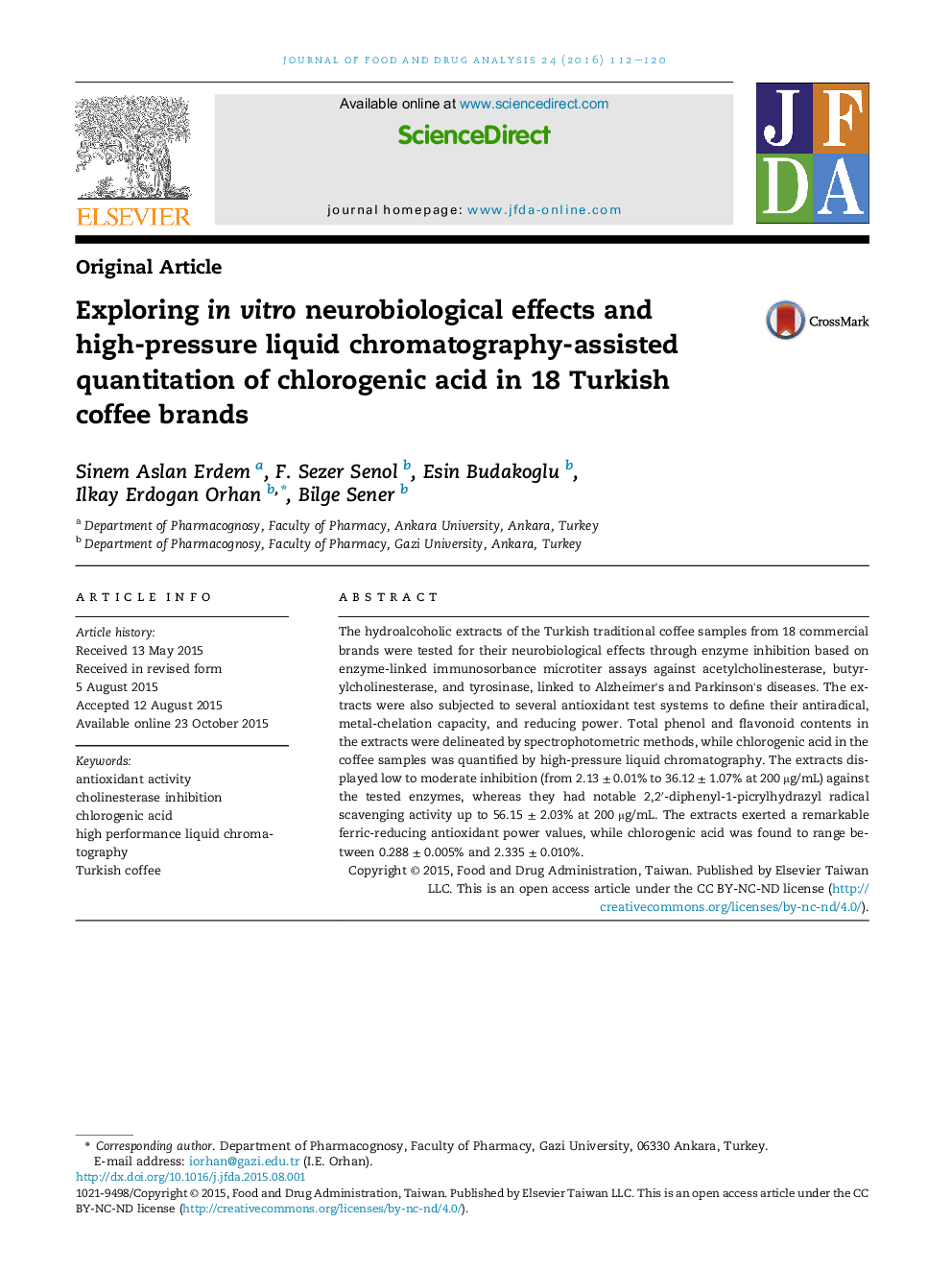| Article ID | Journal | Published Year | Pages | File Type |
|---|---|---|---|---|
| 2507268 | Journal of Food and Drug Analysis | 2016 | 9 Pages |
The hydroalcoholic extracts of the Turkish traditional coffee samples from 18 commercial brands were tested for their neurobiological effects through enzyme inhibition based on enzyme-linked immunosorbance microtiter assays against acetylcholinesterase, butyrylcholinesterase, and tyrosinase, linked to Alzheimer's and Parkinson's diseases. The extracts were also subjected to several antioxidant test systems to define their antiradical, metal-chelation capacity, and reducing power. Total phenol and flavonoid contents in the extracts were delineated by spectrophotometric methods, while chlorogenic acid in the coffee samples was quantified by high-pressure liquid chromatography. The extracts displayed low to moderate inhibition (from 2.13 ± 0.01% to 36.12 ± 1.07% at 200 μg/mL) against the tested enzymes, whereas they had notable 2,2′-diphenyl-1-picrylhydrazyl radical scavenging activity up to 56.15 ± 2.03% at 200 μg/mL. The extracts exerted a remarkable ferric-reducing antioxidant power values, while chlorogenic acid was found to range between 0.288 ± 0.005% and 2.335 ± 0.010%.
